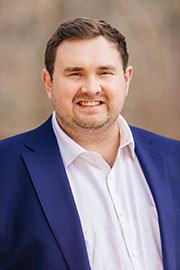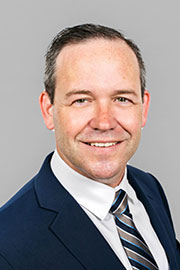- Feb/29/24 10:40:00 a.m.
I just want to introduce Alexander Zan. He’s a student from Waterloo region. He’s participating in the Model Parliament. Welcome to your House.
- Hear!
- Rabble!
- Feb/29/24 10:40:00 a.m.
I want to thank the members of CUPE Ontario, OPSEU, OECTA, the Ontario English Catholic Teachers’ Association as well as members of the OFL who were all here this morning at the press conference to support gender-affirming health care. Thank you very much.
- Hear!
- Rabble!
- Feb/29/24 10:40:00 a.m.
I want to welcome, from my riding, Ashrita Samantula, who is participating in the Legislative Assembly of Ontario’s Model Parliament. I want to welcome her to Queen’s Park.
And I do want to give a shout-out to RNAO. As a board director at Credit Valley Hospital, I spent six years on the front lines, working with them, seeing the great work they do. I had that great privilege, and I want to thank all of you for being here today.
- Hear!
- Rabble!
- Feb/29/24 10:50:00 a.m.
Speaker, the federal government has announced they’re finally going to start the process of establishing a national pharmacare program here in Canada. This will bring much-needed relief to people who are living with chronic illnesses, to seniors, to all people living with disabilities, and it’s something New Democrats at all levels have worked on for many, many years. But much depends on the provincial government to make universal pharmacare a reality, and so far, the Minister of Health has refused to commit to the deal.
So my question is to the Premier: Will you commit to ensuring that all Ontarians have access to essential medication and devices through single-payer coverage?
It’s pretty straightforward. Universal health care must include pharmacare. That was always the intention, since it was first introduced by Tommy Douglas.
We have talked about this many times in this room before—and I will remind everyone, the room is full of nurses here today. I was talking with them this morning about what a game-changer this universal pharmacare program is going to be for their patients. People should not have to choose between medication and food or transportation. Now, thanks to the NDP, Canadians who are struggling with the cost of prescriptions can finally breathe a sigh of relief.
Back to the Premier: Will you commit today to ensure that Ontarians will have access to publicly funded contraceptives and supplies to manage diabetes?
Interjections.
This week, we learned that employees at Shoppers Drug Mart were being pushed to bill for consultations that patients do not need. That company can then bill the province up to $75 per call. That’s double what family doctors can bill for patient visits.
Speaker, I want to know what this Premier is doing to protect patients from this outrageous and unnecessary overbilling.
Interjections.
Speaker, 10,000 people in the Perth area are at risk of losing their family doctors and nurse practitioners, because this government arbitrarily decided not to fund one of their local clinics. There are only 10 doctors, and this government rejected their application for team-based care. Each of those 10 doctors wrote letters to the province asking them to reconsider the application to keep their doors open. If they don’t get the funding support, they expect to close within three years.
My question is for the Minister of Health: Are you going to fund the Tay River Health Centre in Perth?
Perth is just one of the many communities that is being left behind by this government. Some 10,000 people in Sault Ste. Marie are losing their family doctors in May and another 6,000 patients there are on the brink. I will remind the government that last week, I brought in retirees from Sault Ste. Marie, patients who are going to lose that care. In total, the number of patients who are losing access to primary care in Sault Ste. Marie represents more than a quarter of the population of that city. That is shameful.
Speaker, when will the Premier finally invest in the health care that people need in rural and northern Ontario instead of just serving them up his vanity ads?
Interjections.
- Hear!
- Rabble!
- Feb/29/24 10:50:00 a.m.
To reply, the parliamentary assistant to the Minister of Health, the member for Eglinton–Lawrence.
Member for Eglinton–Lawrence.
Again, the member for Eglinton–Lawrence.
Supplementary question?
The member for Eglinton–Lawrence.
- Hear!
- Rabble!
- Feb/29/24 10:50:00 a.m.
I thank the member opposite for the question.
Our government prefers to wait to see what the federal government is going to propose by way of a pharmacare program before we say what our position will be on that. We’re looking forward to receiving a clear description of what they are going to be proceeding with.
In the meantime, this government is making it more convenient for people to connect to care closer to home by launching pharmacists prescribing for some of our most common ailments, and that has been so successful. Local pharmacies have become a one-stop shop to get prescriptions for 19 of the most common ailments. This service makes it more convenient for people to access care, eliminating the need to go to doctors or emergency rooms, at no extra cost to Ontarians. Stopping by your local pharmacy is very convenient and, so far, 700,000 Ontarians have been able to do that at pharmacies, 94% of which are participating.
Obviously, we want to make sure that our Ontario residents have access to all the services they need here in Ontario, and that’s why we’re bringing care closer to home in so many ways.
The pharmacists, like I mentioned, are doing prescribing and treating minor ailments, and 700,000 Ontarians have been able the take advantage of that already.
MedsCheck started under the previous government, and just this morning, the member from Hamilton West–Ancaster–Dundas, in her members’ statement, said that it was a great service. It’s a one-to-one consultation between pharmacists and eligible patients to help comply with their prescription medications and explore how medications interact with each other.
But what is really important, as I said earlier, is the expanded role for pharmacists that they are now playing in our health care system, which has expanded. Local pharmacies have become one-stop shops for people to be able to get their prescriptions filled for 19 of the most common ailments, such as yeast infections, pink eye, acne and urinary tract infections, and that just requires a health card. The pharmacists have now assessed over 700,000 patients with common ailments. Those patients don’t have to go to primary care doctors and don’t have to go to emergency rooms.
This is a great innovation for our health care system. We’re going to keep working with pharmacists.
While the Liberals and the NDP cut residency school spots and limited the number of physicians practising in interdisciplinary teams, our government has added over 10,400 physicians since 2018, and our plan has invested nearly a billion dollars annually into interdisciplinary primary care teams.
In addition to these historic investments, we’ve expanded medical school spots. We’re breaking down barriers for—
Ontario is the first province to have a publicly funded a nurse practitioner-led clinic program, which I know the RNAO would support. And this is in addition to the new Practice Ready Ontario program that’s adding 50 new physicians this year. This government is making the investments that the other parties in this Legislature never made. We’re going to make sure primary care is there.
- Hear!
- Rabble!
- Feb/29/24 11:00:00 a.m.
My question is to the Minister of Citizenship and Multiculturalism. Throughout Black History Month, we celebrate the rich history and many contributions Canada’s Black community has made to our province from the very beginning. As we approach the end of Black History Month, we are reminded that just because February has come to an end, the work doesn’t stop. That is why I’m proud to support this government’s implementation of mandatory Black history in grades 7, 8 and 10, as Black children and youth need to understand that Blacks are not newcomers but are part of the fabric of Canada as a nation since 1600. Yet, Speaker, Black youth in our province continue to face barriers that can impact their future and success.
Speaker, could the minister please tell this House what actions our government is taking to dismantle systemic barriers and empower the next generation of Black leaders with the necessary skills to succeed?
- Hear!
- Rabble!
- Feb/29/24 11:00:00 a.m.
I want to thank the member from Ajax for the question and, of course, all you do as an ally, advocate and leader for Ontario’s Black communities.
Speaker, I am proud to say that, earlier this month, my ministry announced a further investment of $16.5 million into the economic stream of the Black Youth Action Plan. While previous Liberal governments stood by with the NDP, it is our government that took real action by increasing the funding of BYAP to over 500% from 2018 to dismantle barriers, improve outcomes and empower Black children, young professionals and families.
That work does not stop when Black History Month does. Our government will continue to take action and make critical investments needed to ensure all Ontarians, no matter their race, religion or background, have all the tools and opportunities they need—
- Hear!
- Rabble!
- Feb/29/24 11:00:00 a.m.
My question is for the Minister of Indigenous Affairs and Northern Development. The carbon tax is making everything more expensive for everyone in this province, especially in northern and Indigenous communities.
The cost of transporting goods in northern Ontario is already much higher than in any other part of the province. Individuals in these communities often travel by car and in many cases larger vehicles for safety due to the many back roads and weather conditions, but the federal government is ignoring these concerns.
We know that the people of northern Ontario deserve better. Can the minister please explain more about the negative impact that the federal carbon tax is having on the quality of life for the people in northern Ontario?
Our government recognizes that this regressive and punitive tax is negatively affecting people in these communities as they are hit hardest at the gas pumps and at the grocery stores. That’s why we will continue to support them and call on the federal government to eliminate the costly carbon tax.
Speaker, can the parliamentary assistant elaborate on the detrimental effects that the carbon tax is having on the people, communities and businesses in the north?
- Hear!
- Rabble!
- Feb/29/24 11:00:00 a.m.
Thank you to the member from Brantford–Brant for that question. The member from Kiiwetinoong often discusses the price difference in groceries between more populated communities in the north such as Sioux Lookout and the price of groceries in Sandy Lake First Nation. He notes that the price of chicken is often six times higher in Sandy Lake than it is in Sioux Lookout.
A 2022 report from the Office of the Auditor General of Canada concluded that Indigenous groups are disproportionately burdened by carbon pricing. This is before you factor in the harsh impacts of inflation that are disproportionally felt in remote communities and only being made worse by the carbon tax.
We know that the carbon tax is affecting the price of groceries and the supply chain. We continue to call on the members of the Liberals and NDP to support our government’s call to axe the carbon tax once and for all, for all Canadians.
Is the member from Orléans and the Liberal Party not aware that the dozens of remote and isolated communities rely on diesel fuel and that heat pumps will not work in communities in northern Ontario as temperatures exceed minus 20?
Our government is hard at work to get Indigenous communities off of diesel and onto our clean provincial power grid, but in the meantime, northerners and Indigenous communities are forced to pay more to heat their homes and gas up their vehicles because of the burdensome Trudeau carbon tax.
Members in my riding have routinely called me to say that it’s an additional $450 just in carbon tax to heat their homes. We continue to call on the members opposite to support us in calling on the federal government to axe the carbon tax to make life more affordable for northerners and First Nations people so that we don’t need to choose between heating and eating.
- Hear!
- Rabble!
- Feb/29/24 11:00:00 a.m.
My question is for the Minister of Health. My constituent Kirsten has experienced great challenges accessing take-home cancer drugs. Kirsten was weeks away from losing access to life-saving medication all because Ontario does not automatically cover the cost of take-home cancer drugs. While on medication to help prevent a recurrence of breast cancer, Kirsten lost her job due to downsizing. Along with her income, she lost benefits. She was shocked to learn that Ontario does not automatically cover take-home cancer drugs. This is a long-standing broken promise of this government. To quote Kirsten: “To know that there’s this treatment that was so important to be on and the stress of not being able to potentially have it is near debilitating.”
Speaker, can the Minister of Health tell Kirsten when will Ontario cover the cost of take-home cancer drugs?
Interjections.
- Hear!
- Rabble!
- Feb/29/24 11:00:00 a.m.
To reply, the parliamentary assistant and member for Thunder Bay–Atikokan.
The member for Eglinton–Lawrence.
- Hear!
- Rabble!
- Feb/29/24 11:00:00 a.m.
British Columbia, Alberta, Saskatchewan, Manitoba, Quebec—they all cover take-home cancer drugs, some of them for decades. But in Ontario, good people like Kirsten face administrative and emotional barriers on their already difficult health recovery journey from cancer.
In 2022, your government said it would look at covering take-home cancer drugs. Speaker, today, the Canadian Cancer Society is calling out this government.
Access to take-home cancer drugs saves lives. Ask any member of RNAO here today. Minister, how much longer are we going to have to wait until Ontario covers take-home cancer drugs?
- Hear!
- Rabble!
- Feb/29/24 11:00:00 a.m.
Cancer is a debilitating disease. A lot of us have personal experiences with it and so I do empathize with the patient. Our government will continue to work to ensure Ontarians have access to the care they need when they need it.
In Ontario, take-home cancer drugs are funded both by the New Drug Funding Program and the Ontario Drug Benefit Program. In 2022, our government spent over $1.7 billion on cancer drugs, 58% of which went toward take-home cancer drugs.
According to a recent report, while Ontario has the second-highest incidence rate of new cancer cases compared to other provinces and territories, we’re doing a good job on treating them because we have the third-lowest mortality rate for cancer in Canada, and that’s thanks to our great health care providers.
As part of budget 2022-23, an advisory table was struck with a mandate to explore improvements to access for take-home cancer drugs and we’ve already taken action, expanding the use of safe and effective biosimilar drugs while allowing our government to reinvest in new drug therapies to support more people receiving more accessible care.
As I indicated in my answer, in 2022, for example, our government spent over $1.7 billion on cancer drugs, 58% of which went toward take-home cancer drugs. So we’re continuing to work with our stakeholders and partners on further discussions and we’ll continue to look at that.
But our government is also making health care more accessible for everybody closer to home, and I know this is welcomed by cancer patients. For example, we funded 49 MRI operations in hospitals in small and rural communities, which is very much appreciated, so people can get a diagnosis easier.
We’re also funding community paramedicine. As I mentioned earlier, we have the pharmacist funding with 700,000 assessments in the pharmacies happening just this year alone. So we’re doing everything we can, in addition to our primary care expansion at $110 million, to make sure that care is closer to home for everyone.
- Hear!
- Rabble!
- Feb/29/24 11:10:00 a.m.
Again, I would like to thank the member for Ajax for such an important question. Throughout Black History Month I have had the pleasure to meet with many Black Youth Action Plan program participants and see first-hand how BYAP-supported programming is driving positive change in communities across our great province.
Since 2018, Mr. Speaker, our government has supported over 70 Black-led community organizations, which in turn has improved the outcomes of over 60,000 Black children, youth and families. Since launching our economic empowerment stream in 2020, we have helped over 5,000 Black youth and young professionals launch meaningful careers in high-demand sectors like STEM, health care and the skilled trades.
Mr. Speaker, while the Liberals supported by the NDP stood by, our government will continue building a stronger Ontario where all have the tools and opportunities to achieve their dreams and reach their full potential.
- Hear!
- Rabble!
- Feb/29/24 11:10:00 a.m.
I welcome the Liberals back into the discussion about how they ran their judicial appointments. Not only were their former chair and their former members multiple-year party donors, I can tell you, when I went back and looked—because I wasn’t looking through this lens as I was appointing judges, but I went back and looked. The Liberals join the NDP in their sanctimonious, high-horse rhetoric and, right before an election, they appointed 27 judges, in 2014. Two years before or three years before, it was three people; then, in 2017, 47 more judges, 40% of whom were donors to that party and that party, and not one donor to this party or the Green Party. So I’ll take no lessons from them on how the system should work.
Interjections.
- Hear!
- Rabble!
- Feb/29/24 11:10:00 a.m.
Thank you.
The supplementary?
The supplementary question?
- Hear!
- Rabble!
- Feb/29/24 11:10:00 a.m.
You know, it took Ontario years of neglect by previous governments to get into this situation that we’re in now, but our government has been taking action and delivering results for Ontarians. Our government is very proud to have one of the largest publicly funded health care systems in the world, a system that we’re investing over $80 billion in this year alone. With our Your Health plan, we’re reducing wait times for surgeries and procedures across the province by connecting Ontarians to the care they need when they need it.
Just yesterday, there was an article in the Ottawa Sun, February 28, with a patient, Deb Paterson, who had knee replacement surgery at the Riverside hospital last year. She said she had an excellent experience. Five months after being told that she would have to wait for a couple of years, she received a call asking if she wanted to have the surgery through this new program. She had surgery four months later, after being assured it was covered by OHIP. She summarized her review of the service with this: “This sure went well for me.”
I remember another story from the Thunder Bay–Superior North riding, where a man had his surgery done much quicker. What we’re doing is seeing that patients are getting back to their lives, to living a fulfilling life much more quickly because they have these surgeries much more quickly. There are countless stories of life-changing impacts across this province: 17,000 people have had cataract surgery already because of the clinics that we opened. They wouldn’t have had that surgery had we not opened those clinics.
We’re delivering for patients in Ontario so they get the care they need when they need it.
- Hear!
- Rabble!
- Feb/29/24 11:10:00 a.m.
My question is to the Premier. A recent report by the Ontario Health Coalition noted that funding for private clinics in the province has increased by 200% in the last year and, for private hospitals, it has been increased by 300%. Meanwhile, we have operating rooms in public hospitals across Ontario that are not used because public hospitals don’t have the funding to recruit and retain staff or pay for the surgeries.
Speaker, why is the Premier choosing to cut public health care and give money to private, for-profit care?
We also know that private clinics are receiving more money per surgery from the government than our public hospitals receive. We know that private surgeries are more expensive than public ones. This government’s privatization scheme is making wait times longer, making the staffing crisis worse and costing taxpayers more, not less.
Why doesn’t the Premier drop the expensive, unfair, two-tier privatization attempt and instead properly fund publicly funded, publicly delivered health care in the province of Ontario and respect the nurses that are here today?
- Hear!
- Rabble!
- Feb/29/24 11:10:00 a.m.
Thank you to the minister for that response. It is reassuring to hear, unlike the previous Liberal government, our government is beginning to take meaningful action and making critical investments to empower Black youth and young professionals across Ontario.
Speaker, community grassroots organizations play an important role in helping youth find meaningful employment, develop critical skills and unlock a brighter future for themselves and their communities. Black youth and communities are not looking for special treatment, but, due to historical barriers, need meaningful opportunities to succeed. Our government must remain focused on creating these opportunities where all Ontarians can achieve their dreams and reach their full potential.
Speaker, could the minister please share with this House some of the ways in which investments towards the Black community action plan are creating and driving success for the Black community?
- Hear!
- Rabble!














